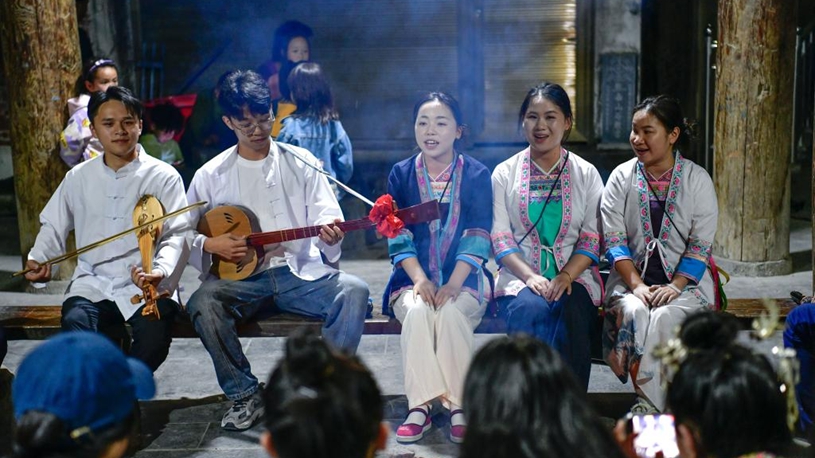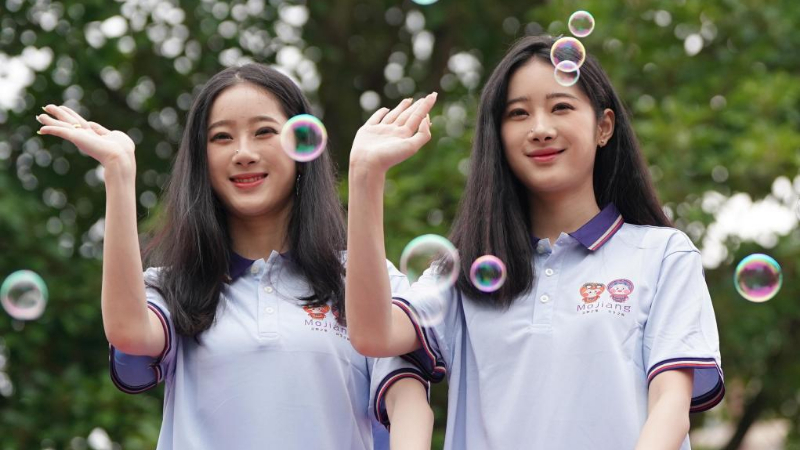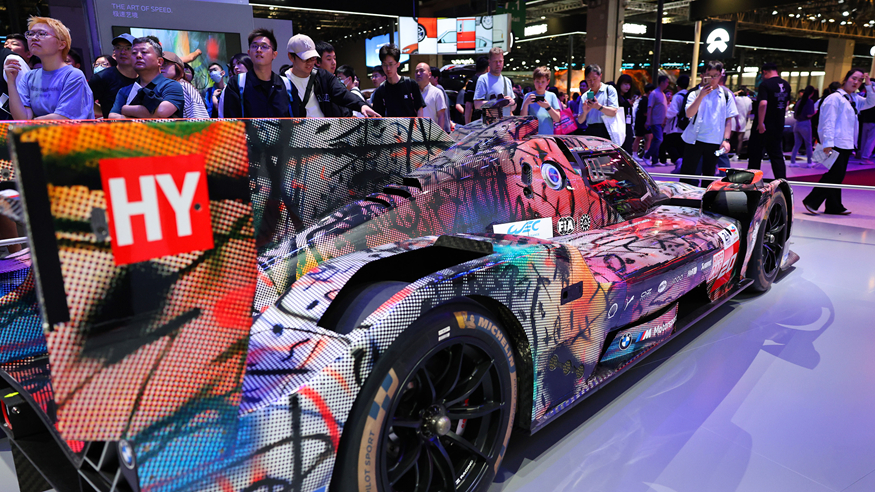One man, one farm: witness to a 69-year legacy of evolving China-Slovakia cooperation
Source: Xinhua
Editor: huaxia
2025-05-03 22:17:15
Over the decades, the farm has evolved into a thriving community of 80,000 residents.
BRATISLAVA, May 3 (Xinhua) -- Nearly 69 years ago, the Czechoslovak Republic made a historic gesture by gifting 670 sets of advanced agricultural machinery to the newly-founded People's Republic of China.
Alongside the agricultural equipment, Czechoslovakia had sent eight experts to Cangzhou in northern China's Hebei Province to teach local farmers how to operate and maintain the machinery.
Their 139-day stay helped transform the region, and in recognition, late Chinese Premier Zhou Enlai named the site, a once barren and salty piece of land, the Sino-Czech-Slovak Friendship Farm.
To honor this legacy, a museum was established at the farm, showcasing models of the donated machinery and documenting the contributions of those original experts.
Additionally, the national pavilions of Czechia and Slovakia from the 2010 Shanghai Expo were relocated to the museum, preserving the spirit of international cooperation.
A new chapter in this legacy is unfolding. Later this year, a new generation of flying cars, developed through collaboration between Slovak and Chinese researchers and entrepreneurs, is set to take off from the same site.
Eduard Sebo, president of United Industries investment group, has recently reflected on the significance of this traditional friendship and cooperation. "I am proud to shoulder the grand mission of inheriting the traditional friendship between our countries," he told Xinhua.
Sebo's personal connection to the farm began 15 years ago during a visit that moved him deeply.
"It means a lot to me that somewhere on the other side of the world, people still appreciate what our predecessors did," he recalled. Inspired by that experience, he sent one of his sons to China to study Chinese, emphasizing the importance of bridging language and cultural gaps to foster genuine, lasting economic partnerships.
Thanks to Sebo's support, 10 additional students from the farm have since been sent to study in Slovakia, laying the groundwork for robust people-to-people cooperation between the two nations.
Sebo himself hails from a family with a 400-year-old winemaking tradition in Modra, a town in the Small Carpathians near Bratislava. Building on this heritage, he established a joint venture at the farm, the Zhongjie Nitra Winery, in 2013, marking a pioneering step in modern Sino-Slovak agricultural collaboration.
In addition, Sebo has played a key role in promoting Central and Eastern European wine culture in China by helping organize four international wine competitions at the farm, with a fifth scheduled for this year. The competitions have helped raise awareness of Chinese wine brands, with a local company even winning the red wine category last year.
Over the decades, the farm has evolved into a thriving community of 80,000 residents. In 2007, it was officially designated the Zhongjie Industrial Park (ZIP). Then in 2018, the China-CEEC SME Cooperation Zone in Cangzhou was launched within ZIP, becoming a central hub for hosting forums and fostering cooperation between SMEs in China and Central and Eastern European countries.
Sebo's business endeavors in China have also grown. In March last year, Hebei Jianxin Flying Car Technology, a joint venture based at the farm and co-funded by United Industries, signed an agreement to acquire the production and sales rights for the Chinese market of the flying car developed by Slovak company Klein Vision.
The latest model of the vehicle is expected to make its maiden flight at the farm's airport later this year.
Sebo emphasizes that his commitment to investing in China is not driven solely by economic motives, but by a deep sense of cultural connection and mutual respect. A philosophy graduate, he resonates with the teachings of Confucius, particularly those related to self-cultivation and ethical conduct.
His efforts were recently recognized with a letter of appointment naming him the cooperation promotion advisor for Slovakia.
For Sebo, the driving force behind decades of effort is simple: "a personal conviction."
Reflecting on the current global landscape, Sebo noted that while the European Union faces uncertainties, China continues to demonstrate impressive economic and technological progress. "It remains a valuable partner for the EU, of which Slovakia is a member," he said.
"People easily forget outdated technologies, but we should never forget what people achieved together and the value of past cooperation." "That's something we must build on," Sebo noted. ■











Comments